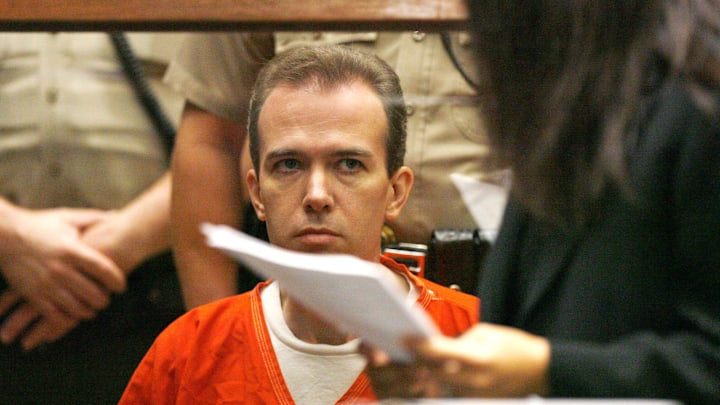The Thrill of the Kill: Understanding the Obsession with True Crime Documentaries

There’s something undeniably hypnotic about true crime documentaries. Whether it’s a chilling Netflix series, a gripping podcast, or a deep-dive YouTube investigation, millions of people eagerly consume stories of murder, fraud, and deception. But why are we so obsessed? What is it about real-life crime that makes it more compelling than fiction?
As it turns out, our fascination with true crime runs deep—tapping into psychology, fear, and even our sense of justice. Let’s dissect this obsession, piece by piece, like detectives investigating a case.
The Psychology of Morbid Curiosity
At its core, true crime appeals to a very human trait: morbid curiosity. We are naturally drawn to the dark and the mysterious, particularly when it comes to danger. This is an evolutionary response—our brains want to understand threats so we can avoid them. Watching true crime, in a way, feels like studying survival tactics.
Psychologists suggest that consuming stories of crime allows us to experience fear in a safe environment. We can explore our darkest anxieties—home invasions, serial killers, con artists—without ever being in actual danger. It’s the same reason people love horror movies, except true crime adds an extra layer of intrigue: it actually happened.
The Appeal of the Whodunit
Humans love puzzles, and true crime documentaries often present themselves as mysteries waiting to be solved. The best ones unfold like detective stories, inviting viewers to piece together clues, analyze motives, and second-guess suspects. Shows like Making a Murderer and The Staircase are designed to keep audiences engaged, revealing new evidence and twists that challenge initial assumptions.
This investigative element makes watching true crime an interactive experience. Many fans find themselves playing amateur detective, scouring Reddit threads, rewatching footage for clues, or debating theories with friends. It’s not just passive entertainment—it’s an intellectual exercise.
The Comfort of Justice (or the Rage of Injustice)
Another reason true crime captivates audiences is its ability to evoke strong emotions. When justice is served, viewers experience catharsis. There’s satisfaction in seeing criminals caught and punished, reinforcing our belief in law and order. Shows like Forensic Files emphasize the role of science and detective work in bringing killers to justice, which can be reassuring in an often chaotic world.
But just as compelling are the cases where justice isn’t served. Stories of wrongful convictions, corrupt investigations, and unsolved mysteries create a different kind of emotional investment—one of frustration, outrage, and the desire for truth. Viewers become advocates, demanding justice for victims, signing petitions, and even reopening cold cases. True crime isn’t just entertainment; it often inspires real-world action.
The Glamorization of the Criminal Mind
Another undeniable draw of true crime documentaries is their focus on the psychology of criminals. From Ted Bundy to Jeffrey Dahmer, society has a long history of being fascinated by infamous killers. Shows often delve into their childhoods, mental states, and motives, offering psychological insights that both horrify and intrigue viewers.
This interest isn’t necessarily about admiration—most people don’t like serial killers, but they are deeply curious about what makes them tick. What drives someone to commit the unthinkable? Are killers born or made? These questions tap into a universal fascination with human behavior, morality, and the thin line between good and evil.
However, there’s also a darker side to this fascination. Some true crime media has been criticized for glorifying killers, turning them into pop culture figures. The rise of documentaries that focus on the "charisma" of criminals—like Zac Efron’s portrayal of Ted Bundy in Extremely Wicked, Shockingly Evil and Vile—has sparked debates about whether true crime content is being consumed ethically.
The Role of Social Media in True Crime Obsession
True crime documentaries have found a new life in the digital age, where social media fuels endless discussion and speculation. TikTok, YouTube, and Reddit have become hubs for amateur sleuths, who dissect cases, analyze police reports, and even attempt to solve mysteries.
In some cases, internet detectives have actually made a difference—helping to identify suspects, push for reopened investigations, and spread awareness about missing persons. But there’s also a downside: social media can spread misinformation, encourage harassment of innocent people, and turn real-life tragedies into viral entertainment.
Why True Crime Isn’t Going Anywhere
The obsession with true crime is unlikely to fade anytime soon. The genre taps into deep psychological needs—our curiosity, our fear, our need for justice, and our fascination with the unknown. As long as crime exists, people will want to understand it, analyze it, and (in some cases) be entertained by it.
However, as the popularity of true crime continues to rise, so does the responsibility of creators and audiences. Ethical storytelling, respect for victims, and critical thinking are essential in ensuring that true crime remains more than just morbid entertainment.
At the end of the day, our interest in true crime isn’t just about crime—it’s about people. Their choices, their mistakes, their tragedies, and their triumphs. And as long as those stories exist, we’ll keep watching, analyzing, and searching for answers.